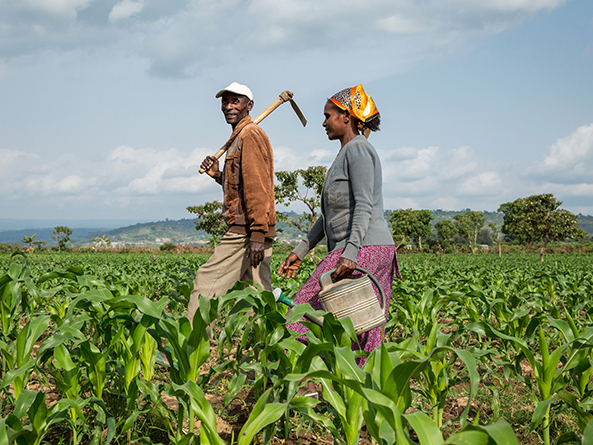The Department is implementing practical methods to encourage agricultural production that will draw in young people and investors to build synergy for economic stability in the Region, according to Mr John Kwamina Gyimah, the Western Regional Director of Agriculture.
To do this, he stated that the Department has joined together with a few private organisations to purchase around 3,000 acres of land as a first step towards making land acquisition simpler for young people and aspiring farmers.
In an interview in Sekondi, he told the Ghana News Agency (GNA) that the action was part of a sustainable agricultural legacy project that aimed to reduce hunger and poverty while generating jobs via the use of cutting-edge technology and creative, effective farming techniques.
Mr Gyimah said the Department’s target was to promote an agricultural system that would leverage emerging technologies to enhance sustainability and increase yield to help cover the demand deficits in both crop and animal productions in the Region.
He stated: “As the Regional Director of Agriculture, I aim to leave a legacy that will benefit our people in both the medium and long term, and I believe that we have all the necessary resources to leverage sustainable agriculture to create wealth for the people, especially the youth.”
He said: “We have spoken to leaders of some Faith-Based Organisations (FBOs) and Community-Based Organisations (CBOs) who have bought into the idea, and some people have already shown interest in acquiring a portion of the land to venture into agriculture as a long-term investment.”
The Western Regional Director of Agriculture stated that in order to develop a robust domestic economy in the area with an emphasis on agriculture, farmers must adopt modern methods of farming, establish dedicated markets in farming zones and implement stringent mechanisms to deal with post-harvest losses,
“Risks associated with farming such as unpredictable weather conditions, soil factors, inadequate plant nutrition, diseases which affect yield, cash flow and also production periods may not align with loan recoveries of traditional financial facilities,” Mr Gyimah explained in his explanation of why farmers did not have access to enough financial support.
In addition, he listed other causes of the issue, citing joint farming, land disputes, and illicit mining operations, all of which hampered farmers’ ability to get acceptable financing arrangements for higher output.
Thus, he counselled farmers to maintain accurate cash flow records with reputable financial institutions and to have their agricultural enterprise appropriately valued, taking into account factors such as staff experience, land ownership and tenure, equipment and tools, production acreage, and yield values.
Mr. Gyimah pointed out that this will assist farmers in obtaining the funding they require to grow their enterprises. Additionally, he urged financial institutions to actively interact with farmers and provide them with a degree of agro-expertise and economic management skills to increase their understanding of how to obtain loan facilities to increase their productivity.














